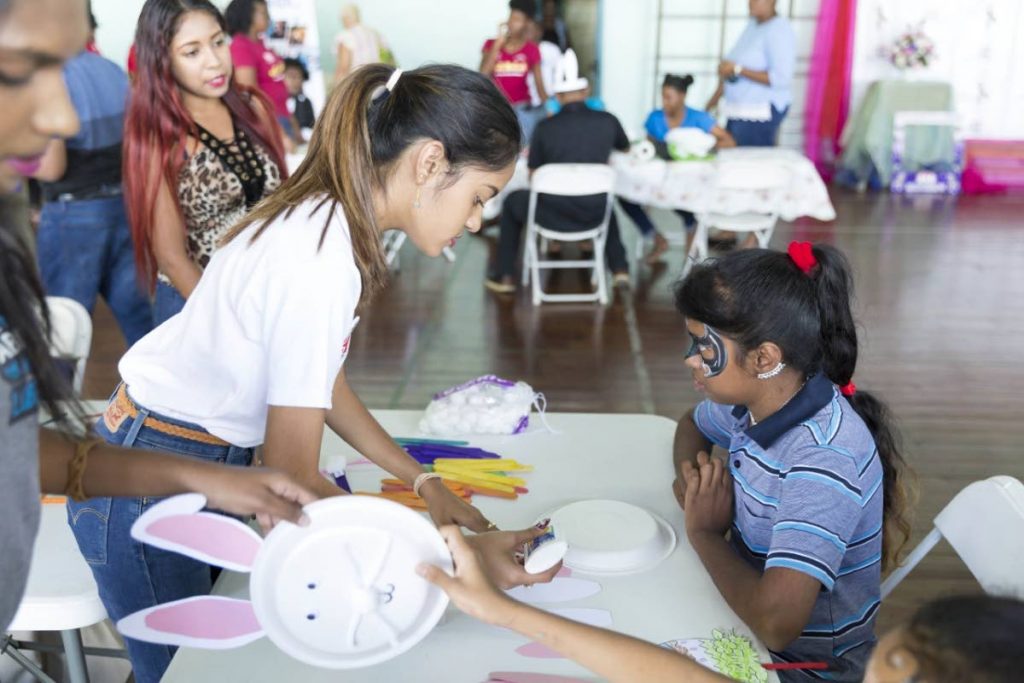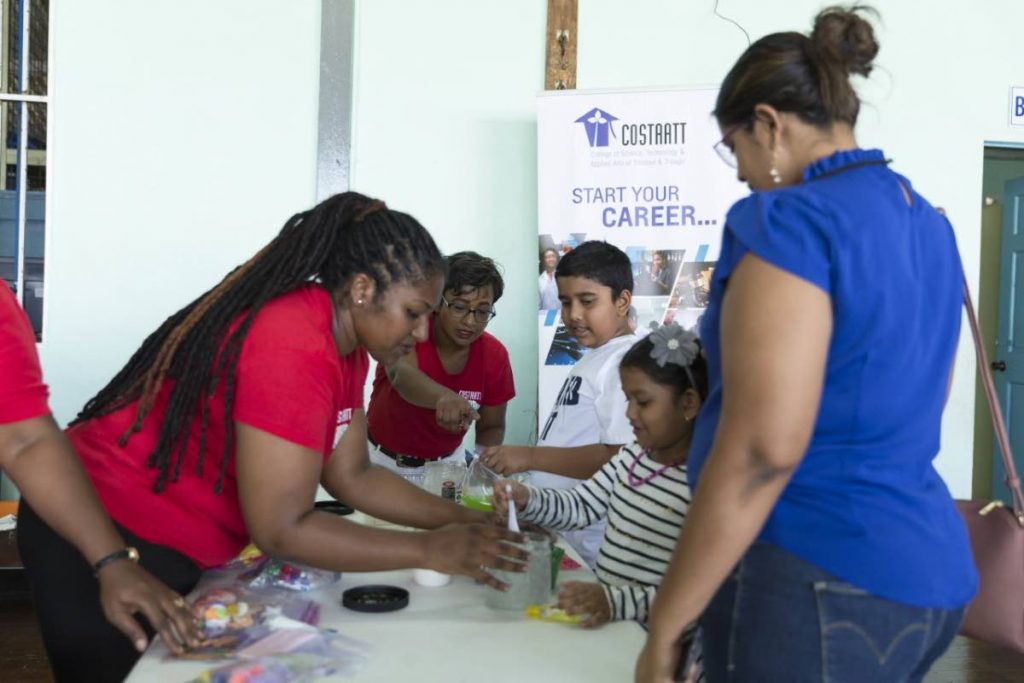Becoming special needs teachers

DR RADICA MAHASE
MAHINA SEECHARAN is a 21-year-old student at the University of Trinidad and Tobago (UTT). She’s in the final year of the bachelor of education programme. Seecharan, along with 23-year-old Rebecca Ramnarine, also a final year student at UTT, volunteer regularly at Support Autism T&T’s events.
Initially Ramnarine wanted to become a general primary schoolteacher. She noted, “I had a passion for teaching and I love kids and the idea of being around them. However, I was not familiar with special needs. I didn’t know anything about special needs. When I realised that there are students with special needs in the regular primary schools, I decided to specialise in Special Needs and Primary Education (SPED).”
Both Seecharan and Ramnarine represent the future of teaching of children with special needs in TT. Later this week, on October 5, we will celebrate World Teachers’ Day and with the 2019 theme Young Teachers: The future of the Profession, it seems only fitting to recognise the young teachers who already work with individuals with special needs and those who will enter into careers in special education.
World Teachers’ Day has been celebrated annually since 1994. This day is designated “to celebrate the teaching profession worldwide, to take stock of achievements, and to address some of the issues central for attracting and keeping the brightest minds and young talents in the profession” and it is an “occasion to mark progress and reflect on ways to counter the remaining challenges for the promotion of the teaching profession. World Teachers’ Day is co-convened in partnership with UNICEF, UNDP, the International Labour Organization, and Education International.”
There are many issues with the education of children with special needs here in TT – insufficient and ineffective educational institutions; lack of continuous training of teachers; insufficient teacher’s aides, amongst others. However, in the midst of all this, there is a young generation of teachers in training at UTT as well as in COSTAATT’s Early Childhood Care Education (ECCE) programme who have been actively engaged in voluntary work with children with autism. Students from both institutions run activity booths at events organised by Support Autism T&T.

They conceptualise and develop sensory-friendly activities which they do at these events. They interact with individuals with autism directly, in many cases using hand over hand prompting to both assist and encourage children to do various activities.
Working with individuals with autism is a valuable experience for these young future teachers. Seecharan noted that, “I volunteer with this NGO so that as a future primary schoolteacher I will be able to notice if my students have any symptoms of autism. Also, after interacting with the children it makes me feel like there is still a little bit of hope in the world for these kids.” Ramnarine stated, “I volunteer with Support Autism T&T because I want to help the kids that are unable to attend a school for whatever reason; I want to be able to reach out to them some way or the other. As a volunteer I am benefiting because I am gaining the experience I need for the field that I am entering into.”
Both of them have hopes for positive changes in special needs education. Ramnarine wants the education of special needs children to be given the same importance as education for neurotypical children. Seecharan stated, “I want education for specials needs students to be available at no cost and also to be accessible.” She also wanted to send a message to other young people like herself who might be considering a career as a teacher:
“My advice to other young people is please do not become a teacher just because you think it is easy. A teacher has to be so much more – a parent, caregiver, counsellor and so many more things. Dealing with children is a difficult job and the profession isn’t valued and appreciated as it should be. If you are getting into this field for the vacations and the salary you might as well get out because it is so much more than that.”
Undeniably it is, and probably more so where children with special needs are concerned. And as we celebrate World Teachers’ Day 2019 we salute all the young teachers who are indeed the future of the profession. Some see the disabilities but special education teachers see the possibilities.
Dr Radica Mahase is founder/director, Support Autism T&T


Comments
"Becoming special needs teachers"